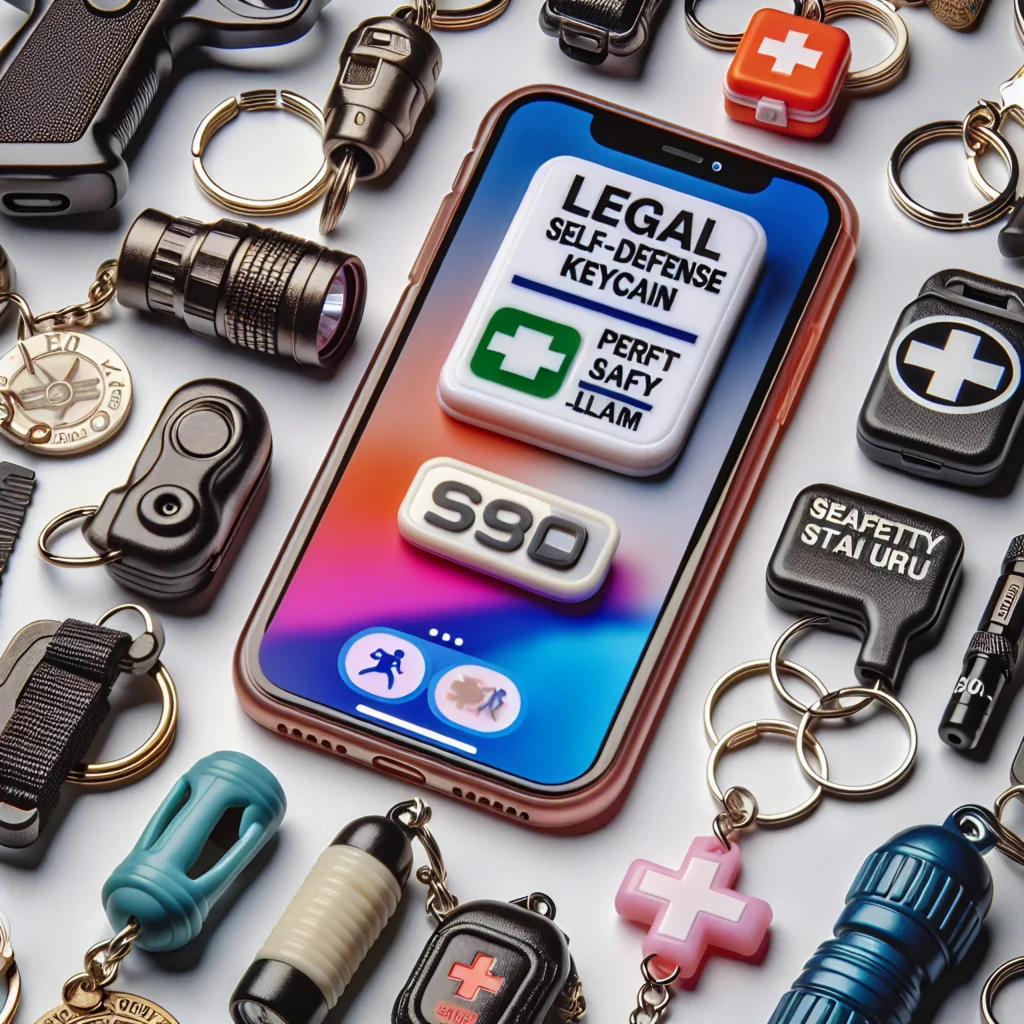Self-defense keychains are often marketed as effective and convenient tools for personal protection. However, their legal status varies significantly across different countries. In the UK, self-defense keychains fall under strict legal regulations that classify them as offensive weapons. Understanding these laws is crucial for anyone considering these products for personal safety.

What Are Self-Defense Keychains?
Self-defense keychains are compact, non-lethal tools designed to be easily carried on a keyring. They are intended to help individuals protect themselves in dangerous situations. Despite their small size and non-lethal design, these keychains are considered offensive weapons under UK law.
UK Laws and Regulations
In the UK, the possession and use of self-defense keychains are governed by the Prevention of Crime Act 1953 and the Criminal Justice Act 1988. Under these acts:
- Self-defense keychains are classified as offensive weapons.
- Possession in public without lawful authority or reasonable excuse is illegal.
- Carrying such items can result in prosecution.
The UK government maintains a strict policy against carrying any item designed as a weapon, even for self-defense purposes. Therefore, it’s essential to understand when and where these keychains can be legally possessed and used.
Responsible Use and Legal Boundaries
To ensure that you stay within the law, follow these guidelines:
- Do Not Carry in Public: Avoid carrying self-defense keychains in public spaces unless you have lawful authority or a reasonable excuse.
- Use on Private Property: Possession and use within private properties are subject to different legal considerations. However, it is still important to understand the boundaries of the law.
- Seek Legal Advice: If you are uncertain about the legality of possessing or using any self-defense item, consult with a legal advisor to ensure compliance with the law.
Alternatives to Self-Defense Keychains
Given the legal restrictions on self-defense keychains in the UK, consider these alternative methods of personal protection:
- Personal Alarms: These devices emit a loud noise to deter attackers and attract attention.
- Self-Defense Classes: Learning martial arts or other self-defense techniques can provide effective means of protection.
- Safety Whistles: Simple yet effective, whistles can alert others to your distress and potentially scare off an attacker.
Disclaimer
The possession and use of self-defense keychains in the UK are subject to strict legal regulations. They are classified as offensive weapons under the Prevention of Crime Act 1953 and the Criminal Justice Act 1988. It is illegal to possess or carry them in public without lawful authority or reasonable excuse, and doing so may result in prosecution. Individuals are advised to familiarize themselves with the laws concerning weapons and self-defense in the UK and to use these keychains responsibly and within the boundaries of the law. Possession and use within private properties are subject to different legal considerations. It is important to seek legal advice if you are uncertain about the legality of possessing or using any item for self-defense purposes.
Educating the Audience
To better inform the public about the legal status of self-defense keychains in the UK, consider using various educational channels:
- Social Media: Share posts detailing the legal status and responsible use of self-defense keychains.
- Website Blogs: Publish articles summarizing relevant laws and offering practical advice on legal alternatives.
- Newsletters: Send out regular updates and tips to keep your audience informed.
Frequently Asked Questions (FAQ)
Q: Are all self-defense keychains illegal in the UK?
A: While self-defense keychains are often marketed for personal protection, they are classified as offensive weapons under UK law. Possession in public without lawful authority or reasonable excuse is illegal.
Q: Can I carry a self-defense keychain on private property?
A: Yes, possession and use of self-defense keychains on private property may have different legal considerations. However, it is still important to understand the specific boundaries of the law.
Q: What should I do if I am unsure about the legality of a self-defense item?
A: If you are uncertain about the legality of possessing or using any self-defense item, it is advisable to consult with a legal advisor to ensure compliance with the law.
Q: What are some legal alternatives to self-defense keychains?
A: Alternatives include personal alarms, self-defense classes, and safety whistles, all of which can provide personal protection within the legal framework of the UK.
Q: Where can I find more information about UK laws on self-defense?
A: Government websites and legal resources offer up-to-date information regarding laws on self-defense and offensive weapons. It is advisable to research these sources or seek legal advice for clarification.
